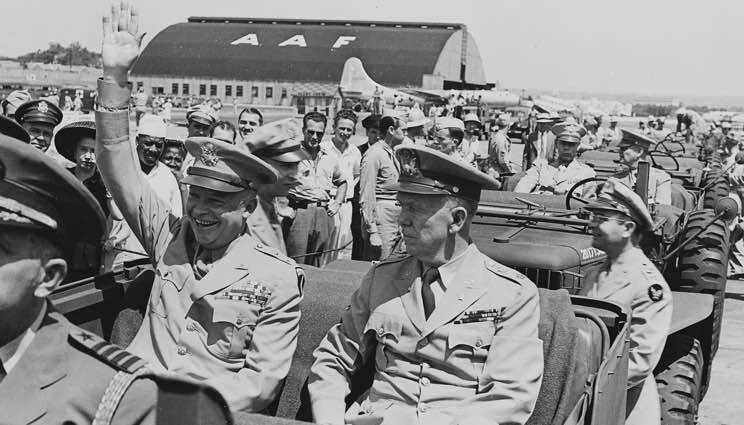We want our leaders to be reliable in their decision making and have depth in character. However, we know that our educational and professional training programmes are geared primarily towards developing what Rabbi Joseph Soloveitchik (author of ‘Lonely Man of Faith’) described as our Adam 1 side. This is one based on individualism, achievements, skills and practical knowledge. It stresses the need to achieve, and is attractive to the modern mind. It is based on the premise that the individual is the ultimate arbiter of his/her authentic self. So what is Adam 11 about? To understand it, let’s look at one example where a predominantly Adam 11 person was highly successful.
George Marshall was a ‘five star’ US general and Nobel Prize winner who came to prominence in the years before World War II. Here was an average boy born into a sunken middle class family who basically failed at school and was an embarrassment to his father. As a young boy he was painfully self-conscious that he was, in academic terms, a poor student. Naturally he became troublesome.
One day he heard his brother trying to persuade his mother not to send him to Virginia Military Academy as his performance there would most likely bring disgrace on the family. However, his mother disagreed and gave the young George her unconditional support and he later admitted that overhearing that conversation changed everything for him. He entered the Virginia Military Institute without having the grades and he knew very well that success would not come from any natural academic talents but from emotional control, self-discipline and commitment. In other words, it would have to come from his character.
At the Virginia Military Institute he learnt about role models and to judge himself against their standards. He excelled at such non-academic activities as drilling, organization, leadership, precision. This helped him to develop an inner self-control. He was philosophical about his limitations and his limited strengths.

An interesting learning point was that he as a person reflected what the Virginia Institute mission was all about; ‘the exercise and control of power’. Like Eisenhower, he was certainly a late bloomer. Afterwards, in the military, he became known and highly respected for his superb organising powers, and direct but sincere way of dealing with problems and people. Later in World War II when Generals like MacArthur and Patton were making the headlines, other generals like Eisenhower and indeed he himself were what David Brooks calls ‘anticinematic’ (i.e. not visibly exhibitionist). Nevertheless, Marshall won the esteem of Roosevelt and the allied leaders, especially the British ones.
Marshall was an Adam 11 persona, not only because of his difficulties growing up and his academic failure, but because he put integrity, emotional self-control, self-discipline, order, courteous behaviour, and organization first. But today where individualism is supreme and each of us see ourselves as the ultimate arbiter, and Adam 1 traits dominate, we don’t seek a balance with the traits that Marshall exhibited. George Marshall was not capable of living his life to suit anyone else: his life was one of leadership that we call magnanimity. George Marshall is but one example of self-mastery, though of course other personalities provide different examples.
But huge barriers exist in building Adam 11. David Brooks tells us “You can’t build Adam 11 lives simply by reading sermons or following abstract rules. Example is the best teacher”. But we have to take into consideration modern communications which are faster and busier, and keep us locked into the external influences of the Adam 1 culture. Social media keeps people occupied and encourages them to self promotion and image building, and to seek praise and approval. There is no time left for quiet reflection.
To begin to build some aspects of Adam 11, some of the following ideas may help us, while remembering there is no rule book:
- Reflect on our lives and accept we are far from perfect.
- Devise a way to understand our strengths and weaknesses. Accepting we are flawed, we have some very positive traits as well as weaknesses.
- Reflect on each day’s happenings and recount each encounter (especially our behaviour and thinking) and activity, and ask ourselves simply, ‘how could I have done that better?’
- Accept that ‘utility’ is but one criterion among others.
- Accept in doing this reflection daily, we are challenging ourselves to find a balance with Adam 1 and Adam 11.
- Read some wisdom literature to reflect on, with the object of understanding life, and the role that character plays in life.
David Brooks’ book, The Road to Character, gives us many examples of how character matters, and how you must find a balance between Adam 1 (skills and knowledge) and Adam 11 (character) to give us this reliability of purpose and depth in character.


Good article, the world needs a reliable leader.